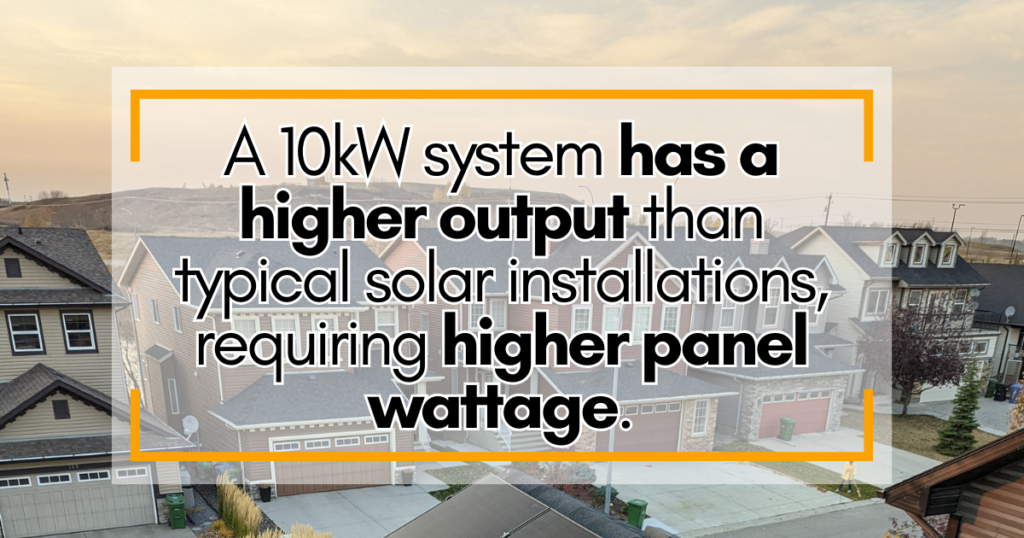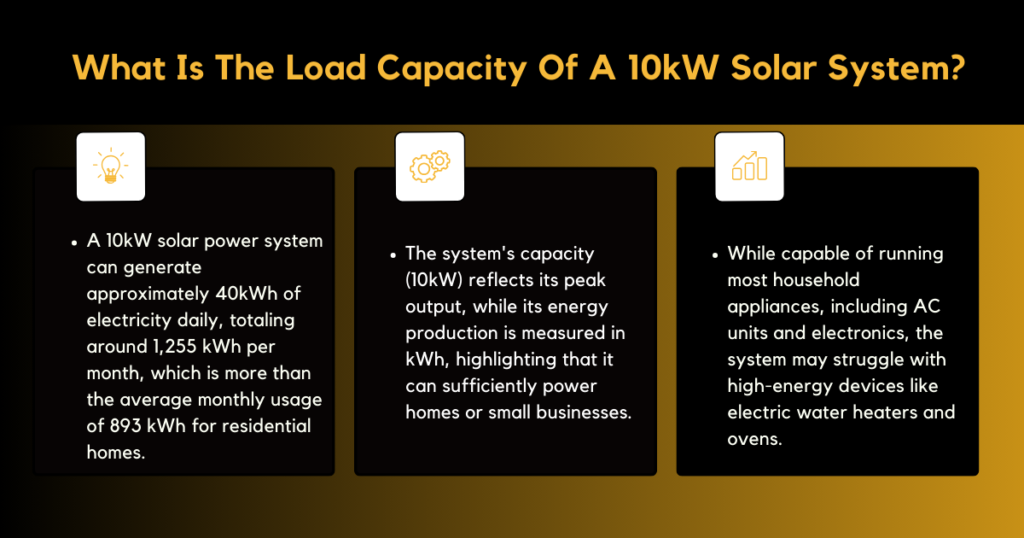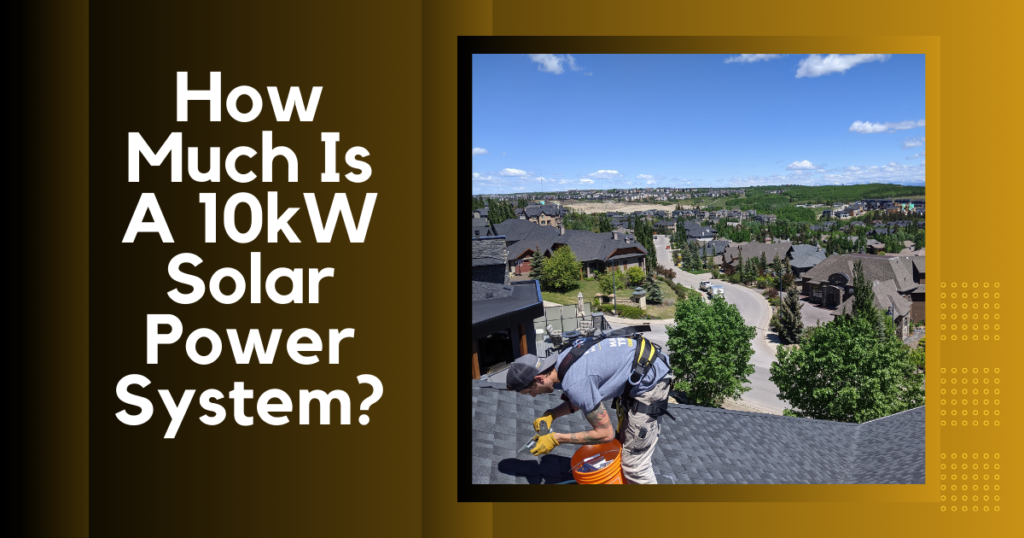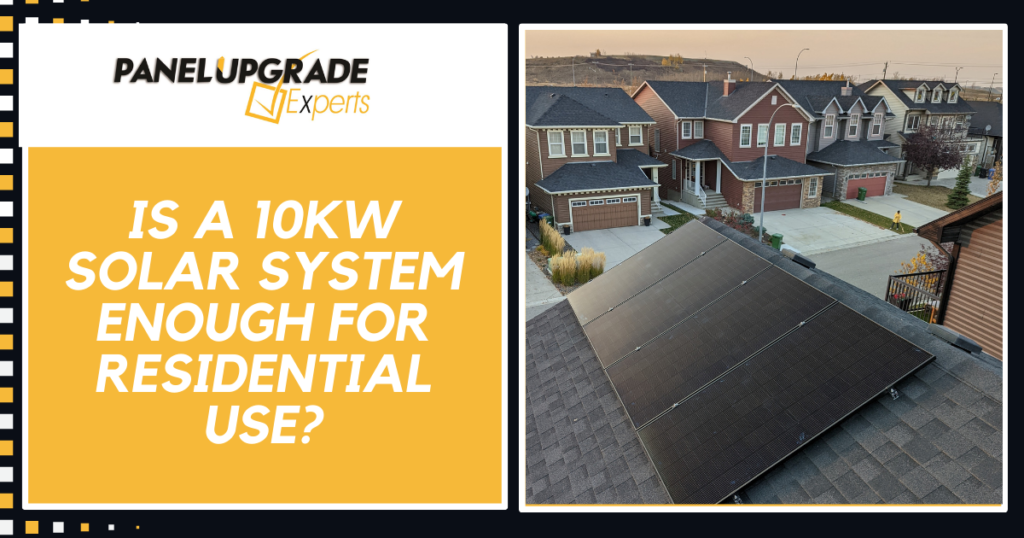A 10kW solar system is becoming more and more popular for residential use. Many homeowners choose this size due to its significant energy production at a cost-effective rate.
If you’re considering this investment, like many of your friends and family, how can you ensure that a 10kW solar system is right for you?
In the following sections, we’ll explore all about a 10kW solar system, including size, power capacity, and cost. With this, you can determine if it’s an ideal choice for your energy needs.
How Big Is A 10kW Solar System?

A 10kW solar power system includes standard components such as an inverter, a charge controller, and sometimes batteries.
The only difference is the number and wattage of the solar panels installed. A 10kW solar system has a higher output than typical solar installations and requires higher panel wattage.
Example, instead of getting forty 250W, you can have fewer but more efficient twenty-five 400W panels to achieve the 10kW capacity.
Depending on your roof’s or lawn’s design and based on an average panel size, installing twenty-five 400W may take up an area 30 feet long and 20 feet wide.
For more limited space scenarios, 440W to 480W would be better.
What Is The Load Capacity Of A 10kW Solar System?

A 10 kW solar power can generate about 40kWh of electricity daily.
This output is equivalent to 1,255 kWh per month, exceeding the average monthly residential usage of 893 kWh. Meaning, a 10kW solar power system is more than enough to power a 4-to-6-bedroom home or a small business.
Before we continue, it’s important to understand the difference between kW and kWh: 10kW indicates the system’s maximum output, while kWh measures the total energy produced.
In terms of supply, a 10kW solar power system can power various appliances, including lighting, computers, TVs, and moderate air conditioning units.
For instance, it can operate a 1.5-ton AC unit for 4-6 hours daily, alongside a refrigerator, washing machine, dishwasher, and multiple lights and fans.
However, it might not be able to handle high-energy appliances like electric water heaters and ovens effectively.
How Much Is A 10kW Solar Power System?

An average solar power system costs over $2 per watt. So, a 10kW and reach $30,000 before incentives. Still, this pricing is subjective to your location, choice of solar installer, and the quality of panels and parts. Recovering the initial investment mostly takes 5-8 years, depending on your local net metering laws and tariff rates.
Final Thoughts
Investing in a 10kW solar system is wise if it matches your energy needs. Assess your energy usage patterns and ensure your roof can accommodate 25 solar panels, ideally with minimal shading.
Consider future energy increases, like adding an electric car charger, to avoid undersizing your system.
To ensure your investment is tailored to your home’s energy requirements throughout the year, consult a solar expert.
Interested in a 10kW system or need more information about its suitability and cost?
Contact Panel Upgrade Experts today for a detailed estimate and expert advice.
FAQs
Is a 10kW solar power system ideal for a fully off-grid setup?
A 10kW solar system is ideal for a full off-grid setting if your daily electricity usage is within the power it generates and you have sufficient battery storage for 3-5 days of energy.
How much can you save in a 10kW solar panel system?
With a 10kW solar panel system, you can estimate a $125 monthly savings or about $1,500 annually. In scenarios where solar fully meets a household’s power needs, or excess energy is sold back to the grid, savings could reach up to $1,603 per year.
What if you install a system larger than you need?
Having a solar system that’s too large for your needs isn’t necessarily bad, but it may mean you’ve spent more on installation than necessary or ending up wasting energy unless you store or sell the excess.

